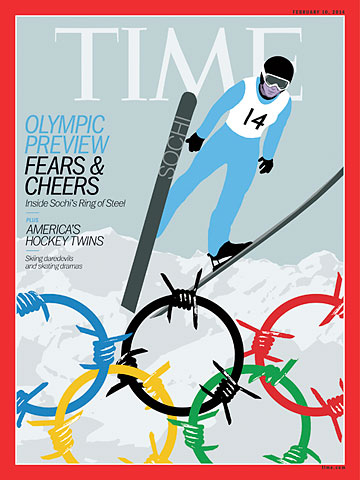
(3 of 3)
Neither can Putin. The core promise of his leadership has always been security, even when it comes at the expense of civil liberties and democratic reforms. In 2000, when he first came to power, that was a bargain Russians were all too eager to accept. The freewheeling 1990s, the first decade of democracy in Russian history, had seen two wars against separatist guerrillas in the region of Chechnya and ended in 1999 with a string of bombings in Moscow. Putin took over the following year with his famous pledge to drown the terrorists "in the outhouse" and to restore a sense of calm.
So these Olympics are a test of whether Putin's iron fist can guarantee security for even a couple of weeks in just one corner of the Caucasus. That is why the fortress of Sochi was built at such cost, and if it fails this time, Russia's grip on those mountains will look as weak to the world as when the gortsy still used sabers instead of bombs. "We always knew the stakes," says Chernyshenko. "We knew from the beginning that it's unforgivable not to deliver everything that has been promised." But as the opening ceremony has moved closer, so has the drumbeat of manhunts, terrorism alerts and explosions in Sochi's backyard. With all that, the promise of a tranquil month of sports, and a Russia free from fear, may already be impossible to deliver.
--With reporting by Michael Crowley/Washington
